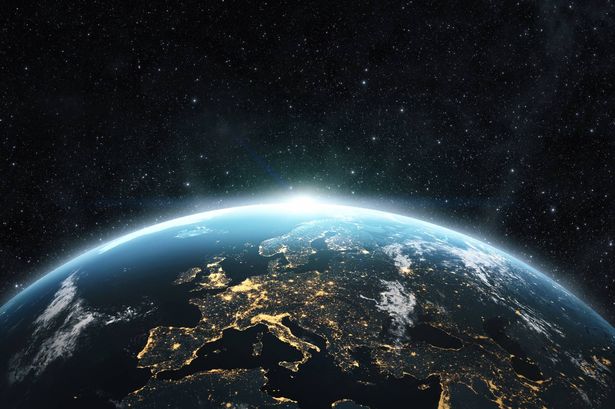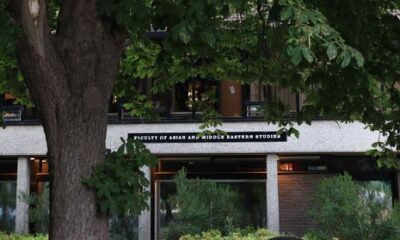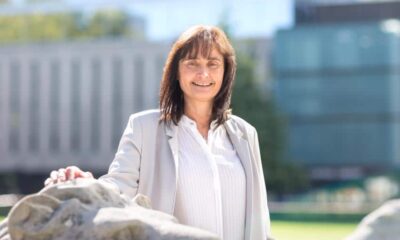Science
Astrophysicist Claims New Equation Proves Existence of God

Dr. Willie Soon, an astrophysicist at the Harvard-Smithsonian Centre for Astrophysics, has made headlines with his assertion that he has found a mathematical proof for the existence of God. During an interview on The Tucker Carlson Network, Soon discussed his belief in the “fine-tuning argument,” which posits that the conditions of the universe are so precise that they suggest the influence of a divine creator.
The notion of fine-tuning suggests that the physical constants of the universe are remarkably exact, allowing for the existence of life as we know it. Soon argues that the improbability of these conditions occurring by chance is too great to ignore. This perspective connects science and spirituality, a relationship often seen as contentious throughout history.
Historical Context and Scientific Foundations
The fine-tuning argument is rooted in ideas first introduced by Cambridge University physicist Paul Dirac in 1963. Dirac suggested that the mathematical elegance observed in nature indicates the presence of a supreme architect. His observations highlighted that fundamental physical laws are articulated through a sophisticated mathematical framework, which he believed pointed to a higher intelligence.
Dirac famously stated, “It seems to be one of the fundamental features of nature that fundamental physical laws are described in terms of mathematical theory of great beauty and power.” He proposed that this beauty could imply a divine mathematician responsible for the universe’s creation.
Echoing Dirac’s sentiments, Dr. Soon emphasized that the complexities of the universe can be seen as evidence of a guiding force. He stated, “There are so many examples of the ever-present forces that allow us to illuminate our lives. God has given us this light, to follow the light and do the best that we can.”
Criticism and Counterarguments
Despite the intriguing nature of Soon’s claims, not all scientists agree with his conclusions. Critics often raise two primary counterarguments against the fine-tuning theory. The first concerns the limitations of our current understanding of the cosmos. While humans are carbon-based lifeforms, the possibility exists that life may arise under different conditions in alternate universes, which could challenge the assumptions of fine-tuning.
The second argument centers around probability. Critics suggest that unlikely events can and do occur regularly. Given the vastness of the universe and the multitude of potential outcomes, the existence of our universe, no matter how improbable, is not beyond the realm of possibility.
Dr. Soon’s assertions have ignited discussions across social media platforms, prompting individuals to reflect on the intersection of science and spirituality. As debates continue, his claims serve as a reminder of the enduring quest to understand the universe and our place within it.
-

 Entertainment3 months ago
Entertainment3 months agoAnn Ming Reflects on ITV’s ‘I Fought the Law’ Drama
-

 Entertainment4 months ago
Entertainment4 months agoKate Garraway Sells £2 Million Home Amid Financial Struggles
-

 Health3 months ago
Health3 months agoKatie Price Faces New Health Concerns After Cancer Symptoms Resurface
-

 Entertainment3 months ago
Entertainment3 months agoCoronation Street’s Carl Webster Faces Trouble with New Affairs
-

 Entertainment3 months ago
Entertainment3 months agoWhere is Tinder Swindler Simon Leviev? Latest Updates Revealed
-

 Entertainment4 months ago
Entertainment4 months agoMarkiplier Addresses AI Controversy During Livestream Response
-

 Science1 month ago
Science1 month agoBrian Cox Addresses Claims of Alien Probe in 3I/ATLAS Discovery
-

 Entertainment4 months ago
Entertainment4 months agoKim Cattrall Posts Cryptic Message After HBO’s Sequel Cancellation
-

 Entertainment3 months ago
Entertainment3 months agoOlivia Attwood Opens Up About Fallout with Former Best Friend
-

 Entertainment6 days ago
Entertainment6 days agoCoronation Street Fans React as Todd Faces Heartbreaking Choice
-

 Entertainment3 months ago
Entertainment3 months agoMasterChef Faces Turmoil as Tom Kerridge Withdraws from Hosting Role
-

 Entertainment4 months ago
Entertainment4 months agoSpeculation Surrounds Home and Away as Cast Departures Mount















